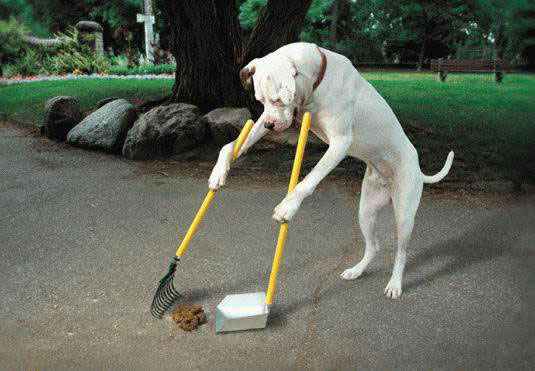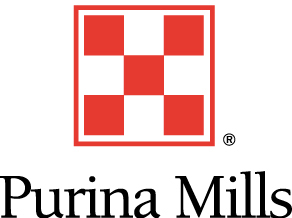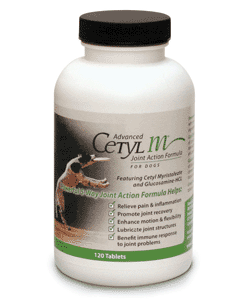
Linda
Products being recalled because of possible salmonella contamination, like the 380 million egg recall, are dominating recent news headlines. Pet food products in particular (Iams cat food, Eukanuba dog food, Merrick pet care treats and many more since the beginning of the year) have been the subject of recalls for the same reasons, possible salmonella contamination.
Why?
Why so many recalls for salmonella in such short amounts of time?
Here is some information on what salmonella is, why outbreaks may be on the rise, and some things you can do to prevent ingesting the virus:
What is salmonella?
from http://www.wisegeek.com/what-is-salmonella.htm
Salmonella refers to a genus of rod shaped bacterium, named after their discoverer Daniel Salmon in 1906. Some of these salmonella bacterium are responsible for many illnesses in humans and other animals. Most commonly, salmonella is the cause of food poisoning and typhoid fever. Salmonella lives in the intestines of mammals, birds and reptiles and is usually harmless.
The type of salmonella that is a health hazard is usually contracted by touching raw meat, raw eggs, raw shellfish or unpasteurized animal products such as milk and cheese. Salmonella bacterium can also be acquired by touching living turtles, birds and humans that have the bacteria on their hands. Salmonella is not a threat until it is ingested, which is one reason why hand washing is important.
Salmonella food poisoning is the result of touching or eating contaminated foods. Its symptoms include diarrhea, vomiting, abdominal cramps and fever. Many foods that people prepare in their home, especially meats and poultry, have warning labels about safe handling on the packaging for this reason. Meat that is not properly cooked or food that is not temperature controlled is often the result of salmonella poisoning when eating out.
Salmonella poisoning usually goes away on its own without treatment in 5-7 days. However, if vomiting and diarrhea are severe and prolonged, a person can become dangerously dehydrated and must seek medical help. In addition, infected infants, the elderly and people that have weak immune systems often need medical care because salmonella sometimes spreads to the blood stream and can possibly become fatal.
Salmonella infections are zoonotic (from Wikipedia)
Zoonotic means the infection can be passed from human to animal and vice versa. Recently there was an announcement of the first case of human salmonella traced to pet food (August 9, http://www.medpagetoday.com/PublicHealthPolicy/PublicHealth/21576). An excerpt from this article:
Most of the salmonellosis cases among young children were significantly associated with feeding pets in the kitchen, possibly leading to cross-contamination — highlighting the importance of proper handling of pet food, Behravesh and co-authors wrote in article published online in Pediatrics.
No statistical association was found between illness and children placing pet food in their mouths, the authors added.
The discovery of the pet food link to human salmonellosis led to large recalls of several brands of pet foods and the eventual closing of the plant where the products were produced.
“This investigation resulted in identification of the first documented outbreak of human salmonellosis linked to the use of dry dog and cat food,” Behravesh and co-authors wrote. “Dry pet food may be contaminated with Salmonella and could be an under-recognized source of human infections, especially in young children,” they concluded.”
Why?
Here is an article from 2008, written after a large-scale salmonella outbreak killed several people and affected most areas of the United States. There is some good information on a probable reason we’re seeing such an increase in outbreaks. You may or may not agree with the authors of this article, but their conclusions make sense to me.
Salmonella is one of the most common causes of food poisoning in the United States, with about 40,000 cases confirmed each year; because many milder infections are never diagnosed, however, the CDC and USDA estimate the real number of cases may be more than a million. About 15,000 of those people are hospitalized each year, and roughly 400 die. But despite its prevalence and stealth — salmonella doesn’t affect food’s taste or smell — the precautions to avoid salmonellosis are simple. The main ones are second nature to many: Wash your hands after using the bathroom and after handling raw meat. (Click here for more prevention tips.)
Still, consumers have limited control over sanitation of food; a lot of hands touch it before ours do. We can Purell our palms dry and blacken the taste out of our steaks, but we often have little choice but to trust all the farmers, factory workers, butchers and busboys not to be lazy or careless. Global and domestic food industries feed millions of Americans every day without overtly betraying that trust, but there are always a few bad apples. And lately the bunch has been especially rotten.
Food-borne again
Major outbreaks of food-borne illnesses such as salmonella and E. coli have repeatedly gripped the United States in recent decades, part of a trend toward more widespread, if not necessarily more frequent or deadly, bacterial pestilence. Over the last four years especially, several high-profile eruptions of food poisoning have catapulted these bacteria into the national spotlight, and the most recent one has Washington buzzing about overhauling the FDA. But why are these outbreaks bigger than they used to be?
For one, the rise of big agriculture has practically set the table for them. Disease-causing bacteria and viruses thrive when one species of host congregates in high densities, and concentrated animal feeding operations offer a dream home for salmonella and E. coli. Huge farms and food-processing plants also supply a wider swath of people than pre-industrial growers did, meaning a single outbreak has a better chance of exploding into a far-reaching epidemic.
Bacteria are also becoming more resistant to antibiotics, a problem that by the mid-’90s had grown so dire the CDC, FDA and USDA collaborated to establish the National Antimicrobial Resistance Monitoring System, which tests salmonella and other microbes for their reactions to our pharmaceutical onslaught. This immunity is a result of overexposure: The more often bacteria come into contact with antibiotics, the more likely they are to develop resistance. That’s because the drugs kill the most susceptible bacteria but often leave a few stronger survivors to reproduce and fill their place, creating a new generation of hardier bugs.
Large-scale agriculture may have a hand in this, too, since farmers routinely give their animals antibiotics to stop bacteria from seizing on the unnaturally high concentrations. A 2005 study blamed the emergence of a multidrug-resistant type of Salmonella Typhimurium — a common strain that caused the recent U.S. outbreak — on “modern intensified farming and food production methods and global trade with live breeder animals.”
And while there’s no evidence they have yet, these outbreaks could get deadlier. Because bacteria that survive antibiotics proved tougher than their fallen comrades, they may also be stronger in other ways, such as virulence. Bacteria can evolve notoriously quickly; when astronauts took salmonella into space during a 12-day research mission in 2007, it responded to the low-gravity environment by becoming three times more lethal.
What you can do to prevent infection:
from the Health Canada article Salmonella prevention
There is no vaccine to prevent salmonellosis, but you can minimize your chances of contracting it by following these steps.
- Contaminated foods may look and smell normal. Thoroughly cook foods to destroy the bacteria.
- Do not eat raw or undercooked eggs, poultry or meat. Remember raw eggs are contained in foods such as homemade hollandaise sauce, caesar and other salad dressings, tiramisu, homemade ice cream, homemade mayonnaise, cookie dough and frostings.
- Poultry and meat, including hamburgers, should be well-cooked, not pink in the middle. If you are served undercooked food in a restaurant, send it back.
- Avoid raw or unpasteurized milk and other dairy products. Mother’s milk is the safest food for infants. Breast feeding prevents salmonellosis and many other health problems.
- Thoroughly wash fruits and vegetables before eating them.
- When buying and storing groceries, keep meats separate from fruits, vegetables, cooked foods and ready-to-eat foods.
- Because bacteria grow quickly at room temperature, go directly home from grocery shopping and refrigerate or freeze food immediately.
- Always defrost food in the refrigerator, in cold water or in the microwave, never at room temperature. Set your refrigerator to 4 degrees C (40 degrees F) and your freezer to -18 degrees C (0 F).
- Wash your hands before handling any food. Be sure to wash your hands, cutting boards, counters, knives and other utensils after preparing uncooked foods.
- If you have been diagnosed with salmonellosis, do not prepare food or pour water for anyone else until you are clear of the bacteria.
- Wash your hands after contact with animal feces, for example, after changing the kitty litter or scooping up after your dog.
- Since reptiles can have Salmonella, always wash your hands after handling them. Reptiles, including turtles, are not appropriate pets for children and should not be in the same house as an infant.
- If you are diagnosed with salmonellosis, be sure that you or your doctor informs the local Public Health Department. If many cases occur at the same time, it may mean that a restaurant or a particular food item has a problem that needs to be corrected.
Be careful and take the steps necessary to protect your health and the health of your pets.












![Reblog this post [with Zemanta]](http://img.zemanta.com/reblog_e.png?x-id=1b67ea46-5fb3-41ca-8ffa-db282601ddd7)

![Reblog this post [with Zemanta]](http://img.zemanta.com/reblog_e.png?x-id=135f45ef-a37b-4041-8183-7a9832b3031c)

![Reblog this post [with Zemanta]](http://img.zemanta.com/reblog_e.png?x-id=90a04371-2073-4611-9b71-b5126292602f)